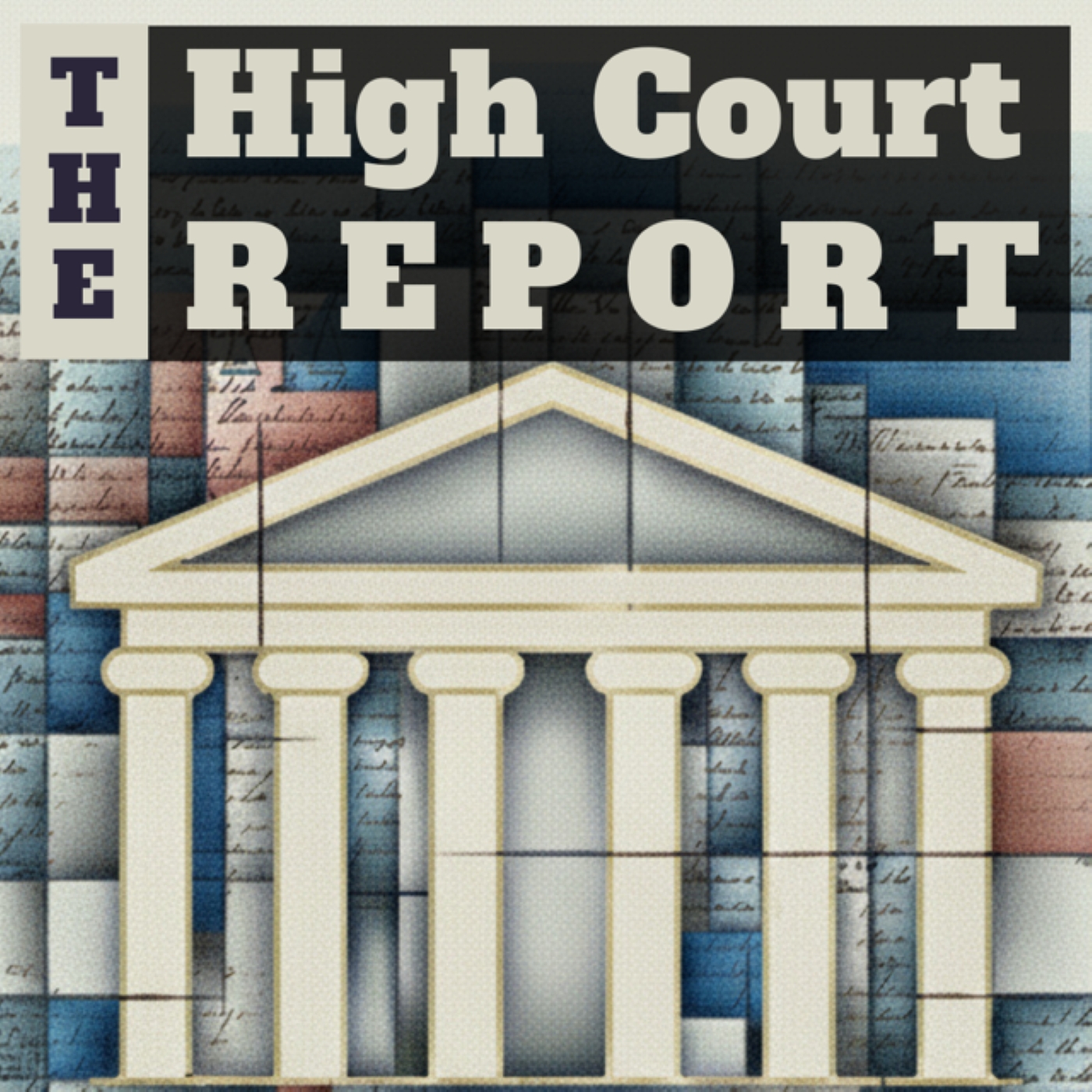Episode 201
Emergency Docket Order Summary: United States v. Shilling | Order Decided: 5/6/25 | Case No. 24A1030
Case Info: United States v. Shilling | Order Decided: 5/6/25 | Case No. 24A1030
Link to Docket: Here.
Question Presented: Whether the Supreme Court should stay the nationwide injunction issued by the United States District Court for the Western District of Washington.
Plain English Translation: This order means that the district court’s nationwide injunction is on hold until final adjudication of the case on the merits. The district court’s nationwide injunction prohibited the Department of Defense from implementing a policy that generally disqualifies from military service individuals who have gender dysphoria or have undergone medical interventions for gender dysphoria.
Voting Breakdown: The Order is unsigned. Justice Sotomayor, Justice Kagan, and Justice Jackson would deny the application.
Timestamps:
00:00 Introduction
00:16 Question Presented
00:28 Emergency Order Text
01:23 Voting Breakdown
01:31 Plain English Order Summary
02:07 Procedural History - Policy Adoption
02:39 Procedural History - Respondent Identities
02:52 Procedural History - District Court Orders
04:39 Procedural History - Government Appeals Denial of Stay of Nationwide Injunction to 9th Circuit; 9th Circuit Denies Appeal
05:15 Procedural History - Government Appeals Applies to Supreme Court for a Stay
05:20 Summary of Government Application - The Policy Satisfies Rational Basis Review
06:42 Summary of Government Application - The Policy Comports with the First Amendment
07:49 Summary of Government Application - The Policy Complies with the Due Process Clause and Principles of Equity
07:59 Summary of Government Application - The District Court Erred in Issuing a Nationwide Injunction
10:04 Summary of Government Application - The Remaining Factors Support the Issuance of a Stay
Transcript
The question presented in this order is whether the Supreme Court should stay the nationwide injunction issued by the United States District Court for the Western District of Washington. Here is the text of the emergency docket order. The application for stay presented to Justice Kagan and by her referred to the Court is granted.
,:Justice Sotomayor, Justice Kagan, and Justice Jackson would deny the application. In plain English, this order means that the district Court's nationwide injunction is on hold until final adjudication of the case on the merits.
The District Court's nationwide injunction prohibited the Department of Defense from implementing a policy that generally disqualifies from military service individuals who have gender dysphoria or who have undergone medical interventions for gender dysphoria. Here is a summary of the government's application.
In February: Speaker A:The policy was based in part on.
Speaker A:The findings of a panel of experts convened during the first Trump administration, which found that service by individuals with gender dysphoria was contrary to the military effectiveness and lethality.
Respondents are seven trans identifying individuals who are currently serving in the military, one trans identifying individual who wishes to join the military, and an advocacy organization whose member include three of the individual respondents.
,: Speaker A: and the: dents characterization of the: Speaker A:On transgender service, the Court held that.
Speaker A: The Court concluded that the: Speaker A:Sexual the Court further concluded that the.
Speaker A:2025 policy failed intermediate scrutiny because, quote, banning transgender persons from serving was not substantially related to achieving military readiness, to.
Speaker A:Achieving unit cohesion, good order or discipline.
Speaker A:Or to cost effectiveness.
The Court also held that the:The Court likewise held that respondents were likely to succeed succeed on their First Amendment, procedural due process, and equitable estoppel claims, and it concluded that the respondents satisfied the remaining preliminary injunction factors. The Court denied the government's request for a stay.
Speaker A:The government appealed and asked the 9th.
Speaker A: ,: ,: ,: Instead, the: ven the military context, the: ing the military's costs. The: The:Respondents claim that the policy violates the First Amendment because it prohibits transgender people from disclosing that they are transgender or expressing a gender identity that is different.
Speaker A:From their sex assigned at birth.
Speaker B: But the: ondents also contend that the:The policy on pronoun uses merely one of many protocols governing how service members should be addressed within the military community. The First Amendment does not stand in the way of such efforts to maintain good order and discipline within military ranks.
court improperly enjoined the:The court should have limited any injunction to the eight individual respondents in the case.
Nationwide or universal remedies exceed the power of Article 3 courts conflict with long standing limits on equitable relief and impose a severe toll on the federal court system. Article three does not empower federal courts to exercise general legal oversight of the legislative and executive branches.
To reach beyond the litigants and to enjoin the executive branch's action towards third parties would be not to decide a judicial controversy but to assume a position of authority over the governmental acts of another and co equal department in authority. Plainly, courts do not possess universal injunctions also contravene this court's precedence on Article 3 standing.
Standing is not dispensed in gross, so plaintiffs must establish standing for each form of relief that they seek. Universal injunctions also transgress restrictions on courts equitable powers.
Speaker A:Federal courts sitting in equity must apply.
Speaker A:Traditional principles of equity jurisdiction and may award only those remedies that were traditionally accorded by courts of equity.
Congress may by statute authorize new remedies, but courts may not on their own authority, create remedies previously unknown to equity jurisprudence. American courts of equity traditionally did not provide relief beyond the parties to the case.
g the injunctions against the:The government will succeed on the merits to the claim, which is a crucial factor determining that the government's application should be granted.
The other stay factors, that is Whether the underlying issues warrant review, whether the government likely faces irreparable harm in the balance of equities support the relief granted requested here.
